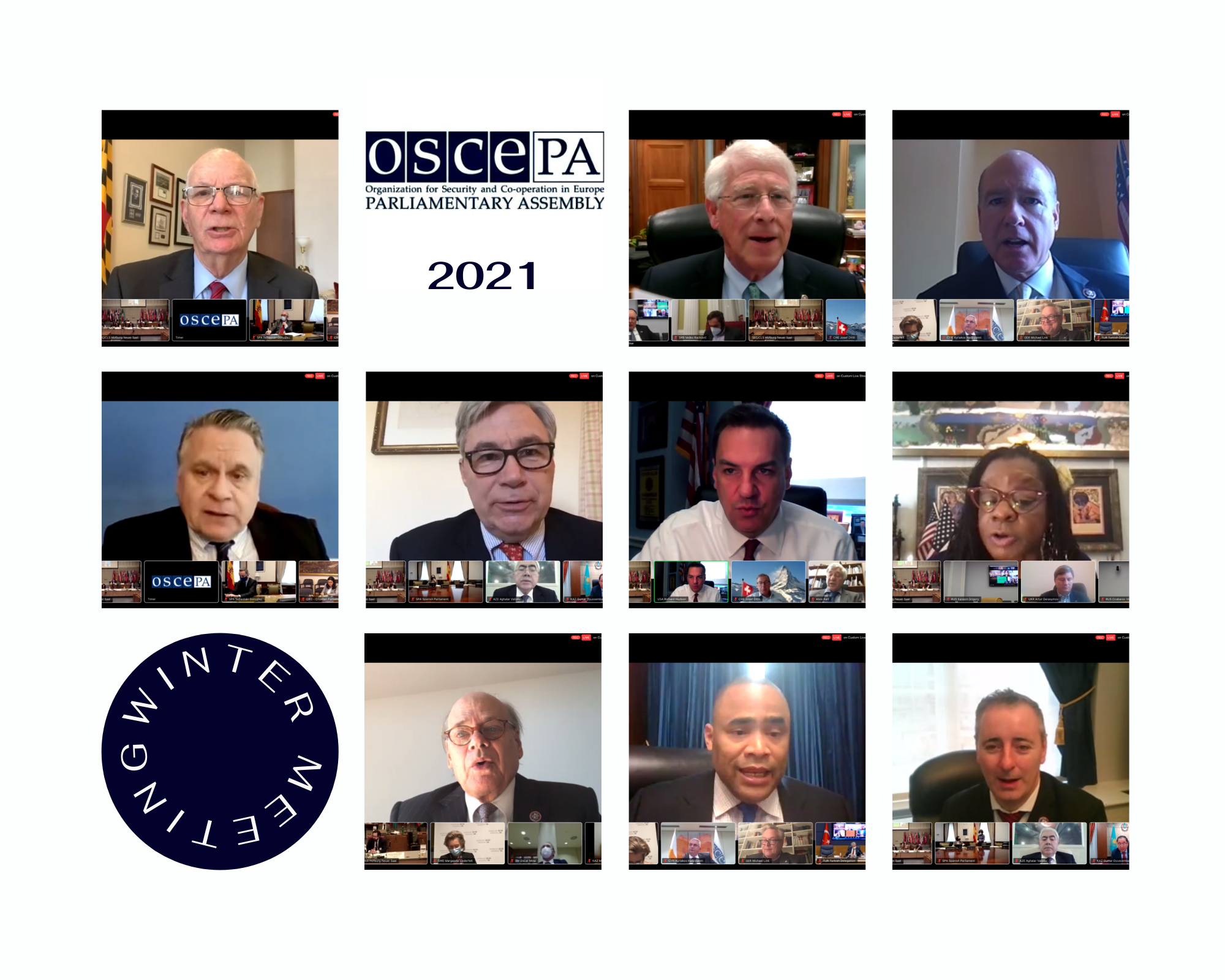Azerbaijan

Helsinki Commission Advances Human Rights, Demands f...
Oct 19, 2023By Shannon Simrell, Senior Policy Advisor Between October 2-13, 11 Helsinki Commission staff joined approximately 1,400 representatives of OSCE participating States (pS) and civil society representatives in Warsaw, Poland in […]
Helsinki Commission Chair and Co-Chair: Statement on...
Feb 20, 2023WASHINGTON—Following reports of the sharp deterioration of Azerbaijani dissident Bakhtiyar Hajiyev, Helsinki Commission Chairman Rep. Joe Wilson (SC-2) and Co-Chairman Sen. Ben Cardin (MD) issued the following joint statement: “We […]
Co-Chairman Cohen, Ranking Member Wilson Introduce T...
Jul 30, 2021WASHINGTON—Helsinki Commission Co-Chairman Rep. Steve Cohen (TN-09) and Ranking Member Rep. Joe Wilson (SC-02) yesterday introduced the Transnational Repression Accountability and Prevention (TRAP) Act in the U.S. House of Representatives. […]
Sweden’s Leadership of the OSCE
Jun 11, 2021In 2021, Sweden chairs the world’s largest regional security organization—the Organization for Security and Cooperation in Europe (OSCE)—which comprises 57 participating States stretching from North America, across Europe, and to […]
COVID-19 Vaccination Rollouts Expose Underlying Ineq...
Jun 07, 2021By Michelle Ngirbabul, Max Kampelman Fellow, and Shannon Simrell, Representative of the Helsinki Commission to the U.S. Mission to the OSCE More than one year into the COVID-19 pandemic, over […]
Swedish Foreign Minister Ann Linde to Appear at Hels...
Jun 03, 2021WASHINGTON—The Commission on Security and Cooperation in Europe, also known as the Helsinki Commission, today announced the following online hearing: SWEDEN’S LEADERSHIP OF THE OSCE Priorities for 2021 Friday, June […]

Helsinki Commission Commemorates 45 Years of Advanci...
Jun 03, 2021WASHINGTON—To commemorate the 45th anniversary of the Commission on Security and Cooperation in Europe, also known as the U.S. Helsinki Commission, on June 3, Chairman Sen. Ben Cardin (MD) and […]
Helsinki Commission Leaders Mark World Press Freedom...
May 03, 2021WASHINGTON—On World Press Freedom Day, Helsinki Commission Chairman Sen. Ben Cardin (MD) and commission leaders Sen. Roger Wicker (MS) and Rep. Joe Wilson (SC-02) issued the following statements: “Press freedom […]

Ten-Member Congressional Delegation Demonstrates Ong...
Mar 05, 2021By Bob Hand, Senior Policy Advisor Approximately 270 parliamentarians from across the OSCE region gathered virtually from February 24 – 26 for the OSCE Parliamentary Assembly’s Winter Meeting, the first […]
OSCE Ministerial Council Appoints Top Leaders, Adopt...
Dec 21, 2020By Shannon Simrell, Representative of the Helsinki Commission to the U.S. Mission to the OSCE Foreign ministers of the 57 OSCE participating States convened on December 3 – 4, 2020, […]

